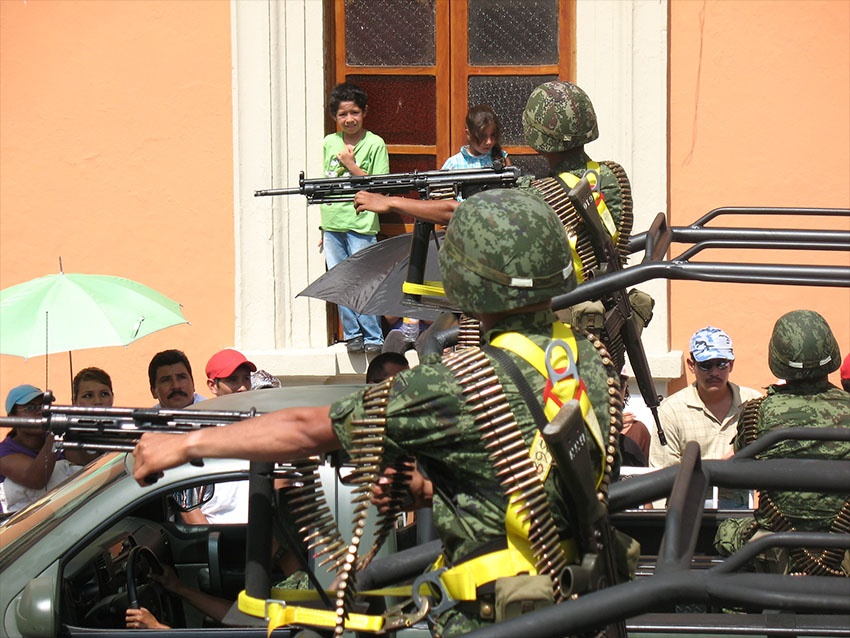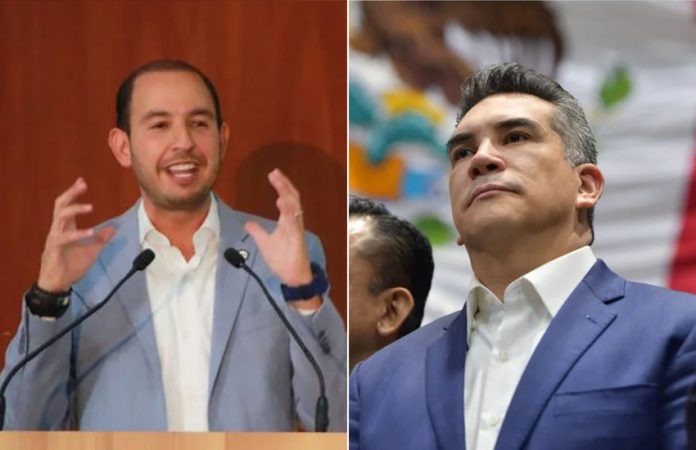The three-party Va por México coalition appears set to break up unless the Institutional Revolutionary Party (PRI) dumps its current leader and its senators vote down a controversial constitutional bill.
The leaders of the National Action Party (PAN) and Democratic Revolution Party (PRD) said Thursday that the alliance might continue but their relationship with PRI president Alejandro Moreno is over. It is difficult to see how the opposition coalition can survive if Moreno – a former Campeche governor who faces corruption charges in that state – remains at the helm of the PRI.
The trouble stems from the PRI’s support of a constitutional bill that, if passed by Congress, would allow the use of the military for public security tasks until 2028. With the support of the PRI, the ruling Morena party and its allies, the bill passed the lower house of Congress on Wednesday and will be considered by the Senate next week.
PAN national president Marko Cortés said Thursday that the party he leads will no longer have a relationship with Moreno, who is also a federal deputy, because it has lost confidence in him.
“He didn’t keep his word and agreements were breached,” he said at an event in Durango at which that state’s new governor was sworn in.
Cortés said last week that the bill put forward by a PRI deputy was “absolutely contradictory” to Va por México’s commitment to not support modifications to the constitution or the militarization of the country.
He said Thursday that the PAN will wait and see what happens in the Senate – where PRI senators look set to vote against the bill – before making a decision about the future of Va por México.
“We hope they’re consistent with what they’ve said until now [and the PRI senators] will vote against [the bill],” Cortés said.

After the vote, members of the PAN national council will meet to decide whether the party will remain allied with the PRI.
PRD president Jesús Zambrano, who was also in Durango for the swearing in of a governor endorsed by the Va por México coalition, said that Moreno – widely known as “Alito” – couldn’t be trusted anymore. He said that his party would reassess the coalition to decide whether it can continue in its current form.
The PAN and PRD said in a joint statement Wednesday that the reform passed by the Chamber of Deputies seeks to extend the “failed security and militarization strategy” beyond the term of the current government.
The “autocratic government” is placing “our democratic system” and “respect for human rights” at “grave risk,” the parties said, adding that the country is “on the verge of a dictatorship.”
“… The national leadership of the PRI and the majority of PRI deputies have broken their word and the signed agreements, and they’ve turned their backs on the citizens who voted for them at the 2021 elections precisely so they would prevent these kinds of anti-democratic reforms that are contrary to freedom and human rights,” the statement said.
The PAN and PRD said they would wait for the legislative process in the Senate to conclude before deciding the “immediate future” of their alliance with the PRI.
While the PRI was in “obvious complicity with Morena” in the lower house, according to the PAN/PRD statement, PRI senators will vote against the constitutional bill, said Miguel Ángel Osorio Chong, the party’s leader in the upper house.
Without the PRI’s support in the Senate, the bill won’t pass as the two-thirds majority required to make a constitutional change won’t be reached.
Osorio Chong, interior minister in the previous federal government, said last week that PRI senators don’t agree with the proposal to continue to use the military for public security tasks until 2028.
“It goes against what we’ve been proposing in recent years,” he said. “[The armed forces] were [already] given enough time,” the senator said, referring to their authorization to carry out public security tasks until 2024.
Militarization is currently a hot button issue in Mexico as the federal government seeks to extend and augment the role the military plays in public life. The National Guard has now been placed under the control of the army, and President López Obrador has assigned a range of non-traditional tasks, including infrastructure construction and management of the nation’s ports and customs, to the military.
He said earlier this week that the ongoing presence of the armed forces on the nation’s streets is essential to guarantee peace, but many human rights organizations oppose the militarization of public security, pointing out that Mexican soldiers and marines have committed or allegedly committed a range of human rights violations, including extrajudicial killings.
With reports from Reforma, Infobae and Animal Político
